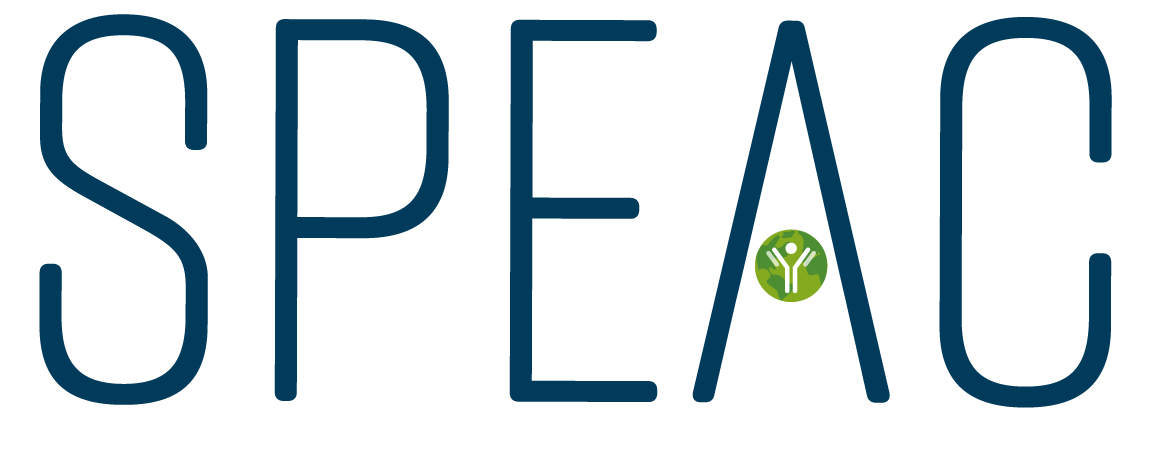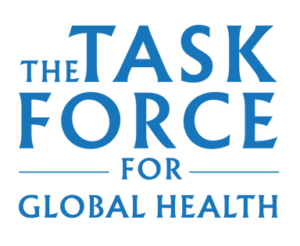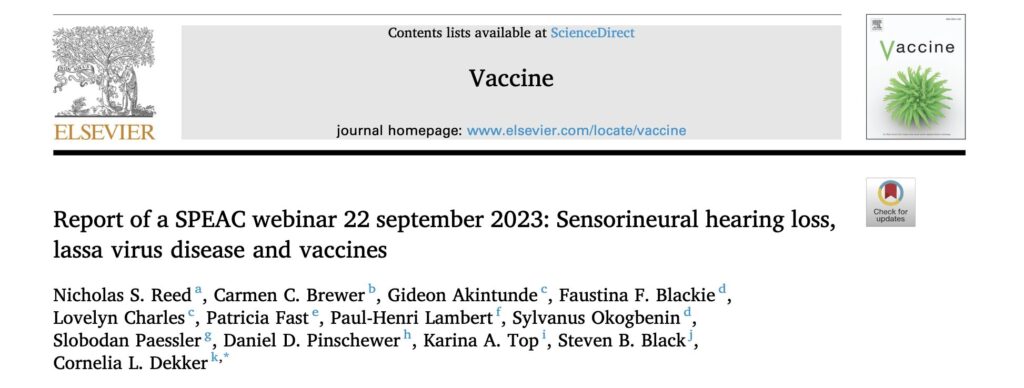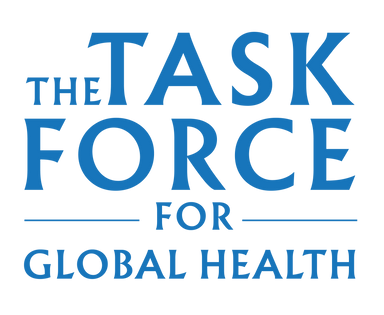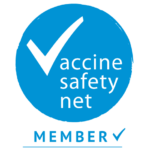Lassa virus (LASV), a member of the Arenavirus family, remains a critical public health challenge in West Africa, with the Nigeria CDC reporting a staggering 7767 suspected cases, 971 confirmed cases and 166 confirmed deaths across 28 states up to 11 August 2024. Alongside its devastating impact, LASV infection poses long-term health risks, such as sensorineural hearing loss (SNHL) in up to 30% of survivors.
As the global health community accelerates vaccine development to combat LASV, key questions arise about the potential risk of SNHL triggered by LASV immunization—a concern that has not been observed in clinical trials to date but requires thorough investigation.
To address this, CEPI (Coalition for Epidemic Preparedness Innovations) and the Brighton Collaboration Safety Platform for Emergency vACcines (SPEAC) hosted a landmark webinar on September 2023, bringing together experts from a dozen organizations. The objectives of the webinar were:
– Review existing data from animal studies and human clinical trials.
– Discuss strategies for incorporating hearing assessments in future clinical trials.
– Explore how these assessments can better inform risk evaluation in both children and adults.
To retain the knowledge gained from the webinar, SPEAC’s Cornelia Dekkerorganized co-authors Nicholas Reed, Carmen Brewer, Gideon Akintunde, Blackie Faustina, Lovelyn Charles, MSc., Faustina F. Blackie., Patricia Fast, Paul-Henri Lambert, sylvanus okogbenin, Slobodan Paessler, Daniel Pinschewer, Karina Top, and Steven Black, in creating a manuscript, which was just published in Vaccine: “Report of a SPEAC webinar 22 September 2023: Sensorineural hearing loss, Lassa virus disease and vaccines.”
Key recommendations from the article include:
✔️ Advancing animal studies: Non-human primate (NHP) models show promise for assessing SNHL risk post-vaccination. More studies with NHPs are recommended, including follow-up on potential SNHL, as they provide a suitable model for human immune responses.
✔️ Baseline hearing measures: Clinical trials should include baseline hearing assessments to detect meaningful changes, using portable audiometers for easier implementation in low-resource settings.
✔️ Comprehensive follow-up: Trial participants with significant changes in hearing should undergo detailed audiology and otolaryngology evaluations to rule out other etiologies, ensuring accurate safety data attribution.
✔️ Personnel training: Personnel conducting hearing assessments should undergo robust training and certification to ensure consistent and reliable data collection.
✔️ Immunological analysis: A subset of trial participants should provide harmonized blood samples to characterize immune responses, aiding in understanding potential safety signals.
These insights strengthen the safety monitoring framework for LASV vaccines while advancing knowledge of LASV-associated SNHL.
Read the full paper at https://lnkd.in/eZWDJ3qV
